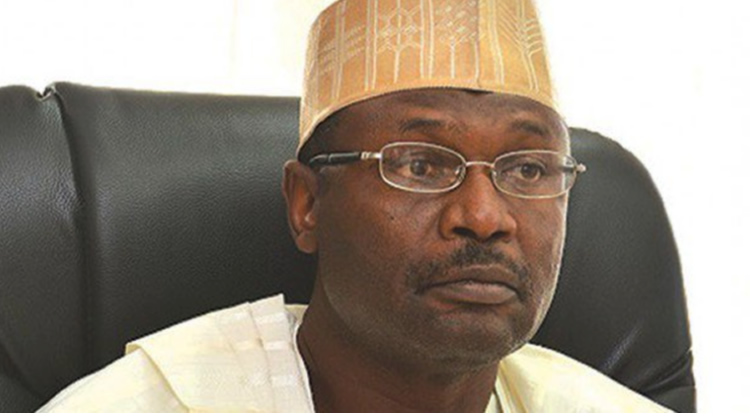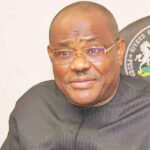
The Independent National Electoral Commission has said it is making preparations for around 95 million voters in next years’ general elections, but warns that the increasing level of insecurity in some parts of the country poses a threat to the polls.
The Chairman, INEC, Prof Mahmoud Yakubu, said this in Lagos on Friday at a forum with members of the Nigeria Guild of Editors.
He stated, “For the 2023 general elections, INEC is making preparations for approximately 95 million voters. Yes, we have 84 million voters now; we have registered 12 million newly. None of the fresh registrants has been added to the register. We are cleaning up the register.
“A few days ago, some people said they discovered so many fictitious names on the register. When I heard that, I asked myself: ‘Which register?’ We have not even compiled it. We are cleaning up the data; so, how come that someone already knows the register, which is supposed to be compiled by the commission? It is a very serious matter for us, because it touches at the heart of credible elections.
“So, some of the people, out of mischief, are talking about what they don’t know. But let me assure Nigerians that no name from the recent Continuous Voter Registration has been added to the register of voters. The law requires us to clean up the data, which we are doing. Thereafter, Section 19, subsection 1 of the Electoral Act says we should throw the register open for Nigerians for claims and objections, so that the citizens can also help the commission to clean the register further.
“This will be done for at least one week in all the 8,809 wards in the 774 local councils in the country. We haven’t done so yet, but we will do that so that Nigerians will have the opportunity to look at the new registrants before we add them to the new register. So, there is no new register as such; we are still in the process of cleaning up.”
PVC collection
Yakubu noted that there had been a challenge with the collection of PVCs, adding that the commission had a meeting with all its resident electoral commissioners and administrative secretaries in Lagos in the week to map out strategies on how to ensure a hitch-free distribution of the PVCs.
He said, “We really want to make it a pleasant experience for citizens. For the new registration exercise, we collected data, including email addresses and telephone numbers for those that have, including those in rural areas. We will reach them either by means of text messages, emails or voice calls to tell them the specific locations where they can pick up their cards.
“We will also activate the portal for the collection of the PVCs. So, those who are savvy can click and know where to collect their PVCs. We are ready to make it a pleasant experience for the citizens.”
Speaking on the importance of a credible electoral process, the INEC boss stated, “Election is only one of the many aspects of our democracy, yet it is perhaps the most significant indicator of our democracy. There can’t be a democracy without elections. So, democracy can’t exist without elections. But the importance of elections is not difficult to understand. In a single day’s event, the lives and livelihoods, in the case of Nigeria of at least 200 million people, will be impacted upon for the next four years, for better or for worse. The beauty of democracy is that this determination, whether for better or for worse, is made by the people themselves.
“Now, elections test the collective capacities and weaknesses of a country to its limit. Election preparations, deployment and implementation constitute the most expensive mobilisation that could happen in a country, whether in peacetime or war. Elections happen in every nook and cranny, every village and every part of the country at the same time.”
He said the commission would deepen the deployment of appropriate technology for the conduct of elections and reassured the citizens that the 2023 polls would be credible.
Yakubu stated, “Our vision for the 2023 general elections is to conduct one of the best general elections conducted in Nigeria, which are going to be free, fair, credible, transparent, inclusive and verifiable.
“We are not only going to continue to deepen the deployment of technology, but we are going for appropriate technology, because inappropriate technology may create its own problems.”
Threats to polls
On possible threats to the conduct of the elections, the INEC boss stated that the security situation in some parts of the country was of major concern in addition to the negative use of social media and politicians’ anti-democratic tendencies.
Yakubu stated, “The first one is the security situation in the country. We have to deploy to all nooks and crannies of the country. We have been speaking with the security agencies and will continue to speak with them, because it is their responsibility to secure the environment for the commission to deploy for elections. So, we are keeping our eyes on the security situation in the country. In the last two elections, 2015 and 2019, insecurity was confined to a particular zone – the North East – even so in three states of Borno, Yobe and Adamawa. This time, it is more widespread. So, the security situation is going to be a big challenge.
“The other one is social media. The events of the last few days have driven this idea home. There was a report that INEC PVCs were found in drainages and inappropriate locations on social media. We set up a committee and they are about rounding up this investigation and there were interesting findings.
“But we ask those who made these revelations to as a matter of patriotic responsibility deliver those allegedly discovered PVCs to any of our 774 local government offices or 36 state offices so that we can look at those cards and make some determinations. We are still waiting on them and we have seen that the clip is mutating with changing locations.
“The third one is the attitude of the politicians. You can’t have a flourishing democracy without democrats. Sometimes I am amazed that when someone votes in an election, immediately he or she loses, he will say that his mandate has been stolen. But power in a democracy belongs to the people; you don’t come with it from your house. So, if you don’t get it, it must have been stolen. So, the attitude of the political class is another big challenge.”
Ad hoc workers
He said despite the challenges, voting would take place in 176,846 locations in the country next year as the commission had recruited 1.4 million ad hoc workers.
Yakubu added, “Any Nigerian, who is in the queue before 2.30pm will have the opportunity to vote, even if it means voting going into the night. Now, doing so requires recruiting, training and deploying staff members that number several times more than the entire Armed Forces of Nigeria. For the 2023 general elections, we will engage at least 1.4 million ad hoc staff members, which is bigger than the size of the Nigerian Armed Forces.
“We are going to deploy this number twice; first on February 25 for the national elections, and on March 11, for the state elections. We are going to manage elections into 1,520 positions in 2023. So, it’s a huge undertaking.”
Despite the challenges, Yakubu promised that the commission would conduct credible polls in 2023, adding, “We have deliberately deployed technology to make rigging very difficult if not impossible. People can sit down and see the result of their polling unit online from the comfort of their homes. What follows subsequently is tallying the result at the various collation centres.
“The most important place during the election is the polling unit; once you protect the integrity of the process at the polling unit, what you need to do is just to protect the processes of collation.”
The INEC boss vowed that the commission would adhere to its schedule of activities for the elections.
Cost of elections
He also gave an insight into why a lot of funds go into the conduct of elections.
According to him, the cost of logistics, highly-secured ballot papers and allowances for personnel, among others, are responsible for the huge funds expended on elections in Nigeria.
Yakubu stated, “In France, the ballot paper is like an A4 sheet of paper, because it is unthinkable that anybody in France will snatch the ballot paper.
“But here in Nigeria, we print ballot papers in currency quality and we entrust them to the Central Bank of Nigeria.
“The ballot papers will now be moved with all the protocols and security according to the movement of the national currency just to protect the process.
“This is not going to be done cheaply. So, we pay for lack of trust in the system.”
He said that the last elections conducted in Ghana, Kenya and Guinea-Bissau were more expensive than Nigeria’s if the voters’ population was considered per capita in relation to the cost.
The INEC boss explained, “The cost in Nigeria, I think, is $9 per head (N4,500) as against what happens in other countries. Ours is not even the most expensive.
“The cost of elections in Nigeria in 2023 is N305bn of the national budget of over N17tn. The cost of elections is just 1.8 per cent, not even up to two per cent of the national budget.
“If we remove the technology cost, 60 per cent of the cost of elections in Nigeria is spent on logistics and personnel allowances.”
On electronic voting, Yakubu said that the country was getting closer to achieving it, noting that it involved several processes.
On vote-buying, the INEC boss said fighting the menace required the involvement of all stakeholders, adding that the commission had taken some steps to stem the tide and make it difficult.
Yakubu said that there were about 161 days to the 2023 general elections, adding that Nigeria could make it work because the commission was committed to electoral justice.
“We have introduced reforms that we believe have taken us out of Egypt and we will never go back,” he said.
Earlier, the President of the NGE, Mustpaha Isah, told Yakubu that members of the Guild were ready to partner with the commission to conduct credible elections in 2023.
He, however, stated that the partnership would not stop the media from monitoring the conduct of the commission and its level of compliance with the laws of the land relating to the conduct of elections.





